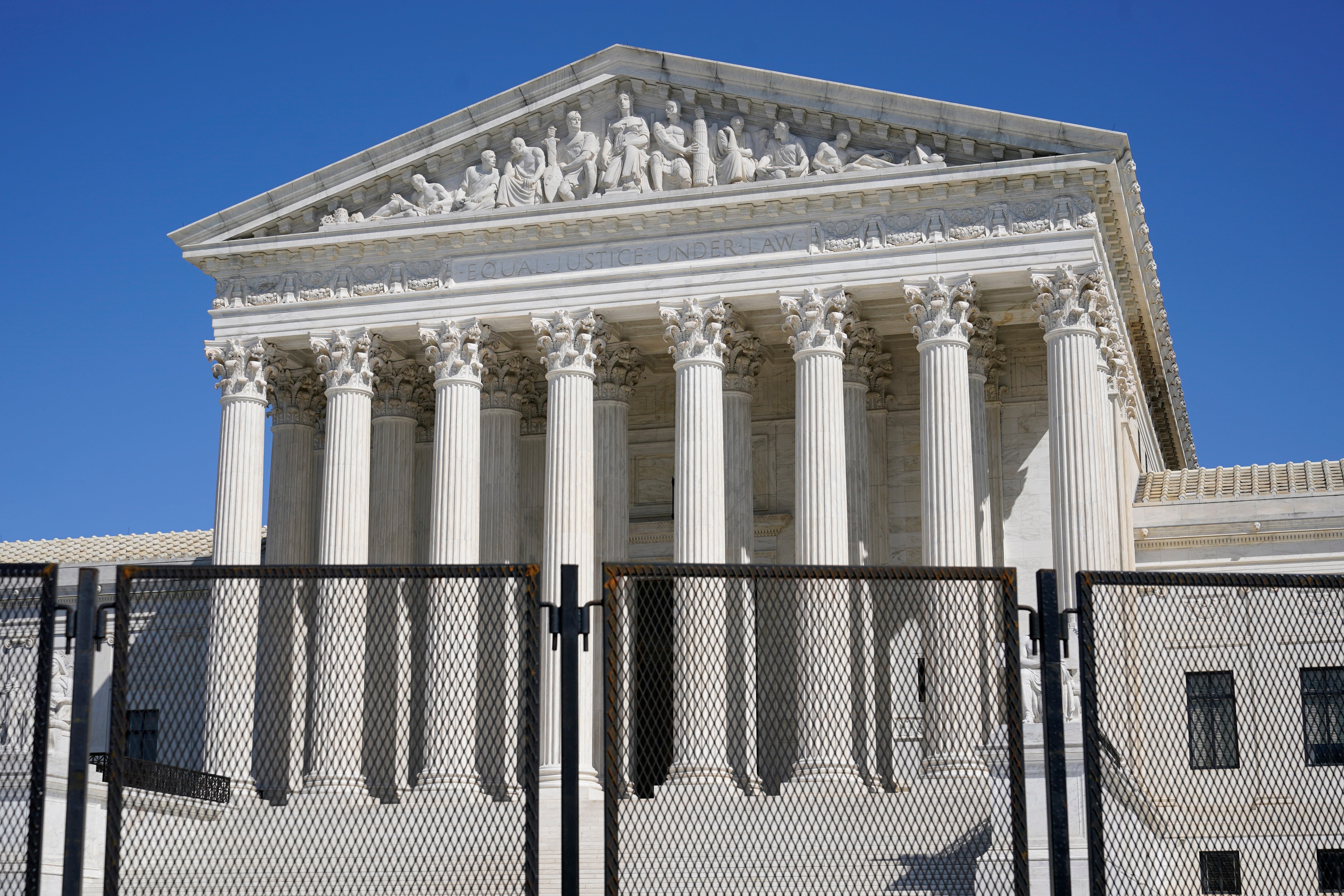Supreme Court asked to give access to secretive court's work
Civil liberties groups are asking the Supreme Court to give the public access to opinions of the secretive court that reviews bulk email collection, warrantless internet searches and other government surveillance programs

Your support helps us to tell the story
From reproductive rights to climate change to Big Tech, The Independent is on the ground when the story is developing. Whether it's investigating the financials of Elon Musk's pro-Trump PAC or producing our latest documentary, 'The A Word', which shines a light on the American women fighting for reproductive rights, we know how important it is to parse out the facts from the messaging.
At such a critical moment in US history, we need reporters on the ground. Your donation allows us to keep sending journalists to speak to both sides of the story.
The Independent is trusted by Americans across the entire political spectrum. And unlike many other quality news outlets, we choose not to lock Americans out of our reporting and analysis with paywalls. We believe quality journalism should be available to everyone, paid for by those who can afford it.
Your support makes all the difference.Civil liberties groups are asking the Supreme Court to give the public access to opinions of the secretive court that reviews bulk email collection, warrantless internet searches and other government surveillance programs.
The groups say in an appeal filed with the high court Monday that the public has a constitutional right to see significant opinions of the Foreign Intelligence Surveillance Court. They also argue that federal courts, not the executive branch, should decide when opinions that potentially affect the privacy of millions of Americans should be made public.
The appeal was filed by Theodore Olson on behalf of the American Civil Liberties Union and the Knight First Amendment Institute at Columbia University. Olson is on the Knight institute's board and was the Bush administration’s top Supreme Court lawyer as the FISA court’s role was expanded after the Sept. 11 attacks.
“You're talking about judicial decisions here that may affect millions of people. The public needs to know the outlines of what those decisions are and how far they go," Olson said in an interview with The Associated Press. "Because of my experience with it, I know that government, with the best of intentions, will tend to err on the side of keeping everything secret."
The Foreign Intelligence Surveillance Court was established in 1978 to receive applications from the FBI to eavesdrop on people it suspects of being agents of a foreign power, such as potential spies or terrorists. After Sept. 11, Congress expanded the court's role to consider broad surveillance programs.
In recent decisions, judges ruled that opinions sought by the groups couldn't be made public, even in censored form, and that they didn't even have the authority to consider releasing the opinions.
Legislation adopted in 2015 includes a provision that requires the government to consider releasing significant FISA court opinions. But the law doesn't apply to opinions written before it was enacted and leaves the review process entirely to the executive branch.
The ACLU and Knight institute say the First Amendment's guarantee of freedom of the press demands greater access.